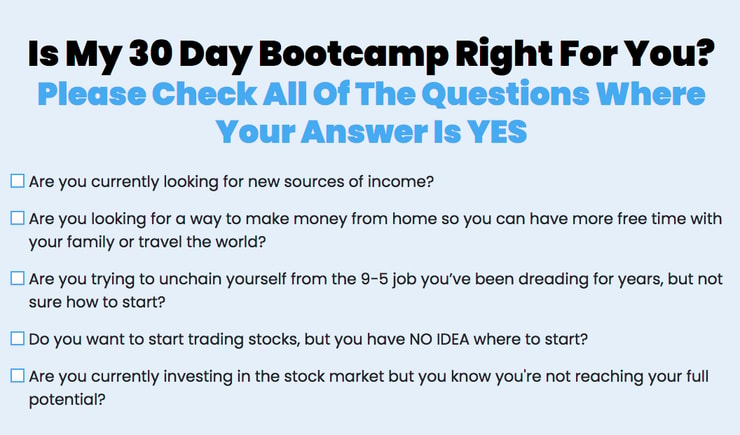Mark Zuckerberg has lost more than 60% of his net worth this year, despite several of his platforms, like WhatsApp, Instagram, and Facebook, reaching record users.
His stock, META Platforms, was taken to the woodshed after the company announced it would invest heavily into the metaverse.
Mark Zuckerberg is in LOVE with the metaverse even though it’s losing his company billions of dollars each quarter.
Love has its place in relationships, charity, and helping others. It has no place in the world of investing and trading.
Investors who fell in love with SPACs got destroyed…
Investors who fell in love with Meme stocks got annihilated…
Investors who fell in love with FANG stocks got smacked silly…
But it’s not just investors who get seduced by “the story.” Traders get caught up in it too.
They start believing that one trade:
- Will set them up for financial freedom
- Get back all their losses
- Prove to others they are smart
- Dispell all the haters
Psychologists say love is the strongest emotion. That’s why it’s so dangerous to fall in love with a stock…and, more so…a specific trade.
Over my 20 years in trading, I can’t tell you how many traders have been wiped out because they stayed with a trade too long because they loved the setup or the catalyst behind the trade.
Even I once fell in love with a play that cost me $500K.
Love Is Not The Answer

Trading is about finding setups where you believe the risk vs. reward is in your favor.
Trade enough favorable setups while being conscious of your risk, and your account will grow steadily over time.
Now, while that sounds simple, the process doesn’t happen overnight.
In fact, several of my millionaire students took months, some years, before they became consistently profitable.
It starts with accepting that it won’t be easy. You’ll need to study, be willing to learn from your mistakes, and believe in the process.
So let’s talk about the process for a little bit.
In the beginning, you probably have little to no experience with stocks. However, you’ve heard about some of the success stories and would like to have your money work for you.
Most people look for shortcuts. They’ll search for “hot picks” or someone with a good track record, hoping they can make some quick money without breaking a sweat.
However, emotions can get in the way. It will be hard to manage the trade if you don’t know why a stock is moving, the catalyst behind it, and the levels you should be watching.
That’s why I tell folks not to mirror my trades. Instead, I ask them to learn the setup and the what and why behind my decision-making.
Many of my millionaire students trade options, even though I don’t. Others have gone on to have greater success than I have. Jack Kellogg and Tim Grittani have cracked the 8-figure profit club.
They wouldn’t have achieved that level of success if they were “copycat” traders.
Once folks realize they can’t copy their way to the top, they start looking for other shortcuts. For example, finding a “homerun” trade will set them up for life.
While these trades exist, (I’ve been fortunate to nail several of them throughout my career) they’re just cherries on top of a sundae for me.
Sticking with the baseball reference, I swing for contact and aim for singles and doubles.
And while I strike out plenty, I take small enough losses where I don’t have to constantly dig myself out of a hole.
That’s because, for me, a trade is just a trade. I know if I have more good ones than bad, I will make money over time.
It’s how I’ve been profitable this year, even though most of Wall Street has gotten wrecked.
As you advance in your journey, you’ll learn that success is boring. It’s doing the right things over and over again.
If you want to fall in love while trading, don’t do it with a stock or a specific trade…fall in love with the process.
Now, if you don’t know where to start, I want to help you.
I developed a 30-Day Bootcamp designed to set you up for future success.
If you decide to take me up on it, I’ll show you how to build a foundation and master the fundamentals, walk you through the strategies and patterns that have made me over $7.4 million, and take you behind the scenes on how I trade for consistent profits.




Leave a reply